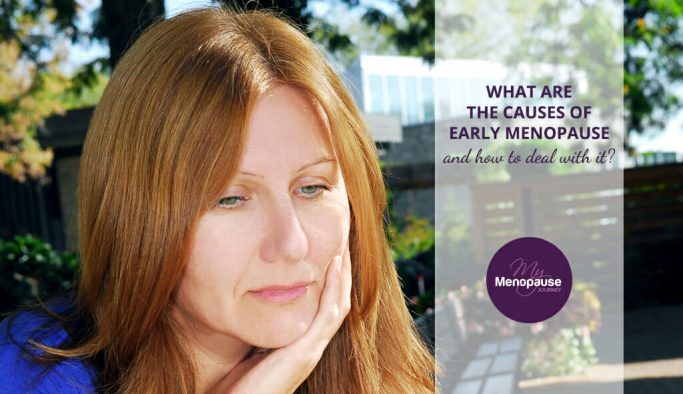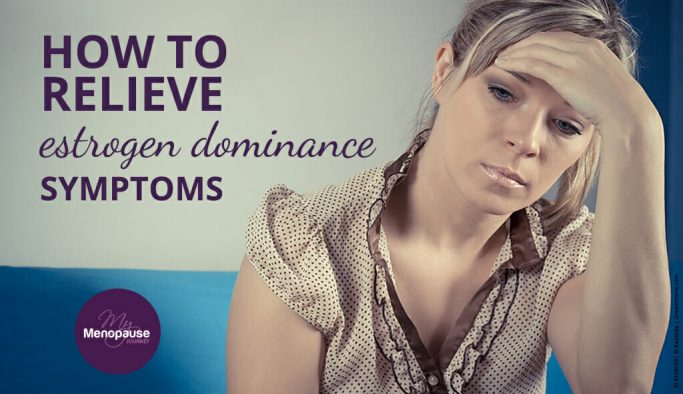Did you know that healthy testosterone levels can be a total game changer for women, too? Yup, it’s not just a “man’s hormone” — it’s also essential for us especially in midlife!
With good testosterone levels, we can enjoy a brighter mood, more energy and an added spark in the romance department. Plus, it strengthens our muscles and bones and can also give our brain health a boost! How awesome is that?
When testosterone joins forces with estrogen, it’s like the ultimate dynamic duo for our body. But remember, like any super hormone, our T-hormones need to stay in check. If testosterone levels get out of balance, we might start experiencing some not-so-fun symptoms.
So, let’s keep those levels healthy and embrace all the amazing benefits they bring!


Table of Contents
What Happens If Women Have Too Little or Too Much Testosterone?
Just like the key female hormones estrogen and progesterone, our testosterone levels also take a dive during midlife. Yep, it’s just a part of all the natural dips and crashes our body deals with while aging!
Other than hormonal reasons, our ovaries and adrenal glands can drop the ball, too. For instance, if the ovaries get surgically removed or if the adrenal glands are not working optimally, our testosterone can take a hit.
But don’t fret — there are many effective ways to keep testosterone at a healthy level! Key word: Healthy. Ever wondered what happens if we swing too far in either direction?
Well, if you’re not getting enough testosterone or if your levels are on the low side, you might start noticing some not-so-fun symptoms. Here’s what could happen if testosterone levels are too low:
- Low libido and sexual satisfaction
- Fatigue and low energy levels
- Mood changes
- Increased risk of osteoporosis (low testosterone levels may reduce bone strength and mass).
- Weight gain (as testosterone helps build muscles)
On the other hand, high testosterone levels in women can leave obvious effects physically, including:
- Excess body hair and facial hair, especially on the chin and upper lip
- Thinning hair, especially around the hairline
- Acne and oily skin
- Enlarged clitoris
- Decreased breast size
- Deepening of the voice or hoarseness
- Changes in body shape and muscle mass
And so, this leads us to the question: “How can we achieve just the right level of testosterone?” We’ll talk about that in the next section — from natural food sources, supplements, herbs and lifestyle changes!
3 Ways to Balance Testosterone Your Levels Naturally in Midlife
For women in midlife, eating testosterone-balancing foods, taking the right supplements, trying some natural herbs and making lifestyle changes are the best ways to balance testosterone levels!
1: Testosterone Food List: The Essential Nutrients to Balance T-Hormones!
Here are the best foods to regulate your testosterone levels naturally:
- Oysters, crabs, lobsters and other shellfish
- Tuna, salmon and sardines
- Beans (white, kidney or black), peas and lentils
- Eggs (especially the yolk)
- Organic, grass-fed beef (chuck roast, or ground beef and liver), lamb and pork
- Garlic and onions
- Mushrooms
- Pomegranate, avocado and grapefruit
- Seeds (flax and chia) and healthy nuts (walnuts, almonds)
- Olive oil
- Broccoli, cauliflower, Brussels sprouts, cabbage, turnips, radish
- Berries (blueberry, acai berry, raspberry and more)
- Dark chocolate
- Cayenne
Aside from being great superfoods, these natural testosterone-boosters also have the following nutrients and compounds — which can all support your overall wellness in midlife:
→ Essential fatty acids and omega-3: Your body needs cholesterol to produce testosterone and the ideal way to get this is through essential fatty acids. Omega-3 is another nutrient known for its benefits on balancing hormones and promoting cellular health!
→ Protein and Amino Acids: Amino acids are essential in the production of testosterone. And the best sources of amino acids? Protein-rich foods!
→ Indoles: These compounds help balance the main female hormones (estrogen and progesterone), which, in turn, boosts testosterone production. Some studies have also shown that indoles can potentially reduce bad estrogen — those sneaky ones that mess with our hormonal harmony!
2: Testosterone Supplements and Herbs for Women Over 40!
Eating a variety of healthy foods is our best bet to balancing T-hormone levels. But there are times when we might need to fill in some nutrient gaps — that’s when supplements can swoop in like little superheroes!
Zinc, magnesium, vitamin C, vitamin B, vitamin D3 + K2 and Omega-3 fatty acids are some of the top supplements that can support healthy testosterone levels. And if you want to explore the wonderful world of herbs, damiana and DHEA are a must-try!
→ Damiana is one of the best to fix low testosterone in women. It has two active and naturally occurring compounds that prevent T-levels from dropping too low: Pinocembrin and Acacetin. Damiana also has antioxidant, anti-cancer and anti-inflammatory properties!
→ Besides boosting hormone production, DHEA includes many benefits such as promoting relaxation, preventing bone loss, increasing muscle mass and giving you more energy. Some have also reported better sex drive and a more lubricated genital area when taking DHEA!
You can also have some herbs like Maca, Ashwagandha, Black Cohosh, Rhodiola, St. John’s Wort, Ginseng.
and Tongkat Ali. These are adaptogens that work with the brain to balance sex hormones — not only testosterone, but also for estrogen and progesterone!
All these vitamins, minerals and herbs are known to help relieve menopause symptoms. So, by including them in your diet, you’re hitting two birds with one stone!
But hey, try one supplement at a time (for a week or two) and observe how you feel. Take note of any side effects or reactions — and stick with the ones your body is in harmony with!
3: 7 Lifestyle Changes for Healthy Testosterone Levels in Women!
You can totally boost your T-levels by just sprucing up your daily habits. Get those T-hormones back on track with these seven easy lifestyle changes:
1. Choose organic goods for your meals. Processed foods are not good for hormonal balance and many other aspects of your midlife health!
2. Avoid sugar as much as possible. High blood sugar can suppress estrogen production! And a decrease in estrogen means that the body will overcompensate by converting more testosterone to estrogen. As a result, T-levels will decline!
3. Avoid trans-fats — those products that contain “partially hydrogenated” vegetable oil. They can mess up with hormone production!
4. Try strength training and channel all that strength from within! Even bodyweight exercises, like push-ups and lunges, can be effective for naturally boosting your T-levels.
5. Minimize alcohol consumption and avoid smoking. Alcohol and nicotine disturb the natural cycle of hormones in the body!
6. Avoid plastic containers and toxin-rich products that can disrupt the natural balance of your hormones!
7. Practice yoga, meditation, and breathing exercises to activate relaxation naturally and achieve better hormonal health!
Aside from all these things mentioned, one of the best ways to balance testosterone is to… well, make more time for intimacy. YUP — studies have shown that your T-levels begin to fall after weeks of not having sex! This can also be the start of the common problem many women experience in midlife: dryness.
I do understand that many women in midlife experience intimacy issues and even vaginal atrophy. I mean, those hormonal dips can truly take a toll on our desire, right? But here’s the good news: Pleasure knows no age.
At this stage of life, it’s not just about the physical side of things; sex is also like a magic potion for emotional connection! But for it to be enjoyable and pleasure-filled, we first have to get some issues out of the way. That’s exactly why I created my brand-new Guide — to help you move past the struggles and bring more pleasure, ease and connection back into your life. Discover my guide, “Pleasure Has No Age” →
It’s a gentle, honest look at how to reconnect with yourself and your partner — with tips that actually work.
What is Testosterone Replacement Therapy?
Testosterone replacement therapy (TRT) is a medical treatment used to restore the natural balance of testosterone. There are FDA-approved testosterone therapies for men, but the approval for women is currently limited. In cases when it is prescribed, only women who have enough estrogen levels are able to pass.
How is TRT done, you may ask?
Well, the therapy usually starts with low doses of testosterone, as your doctor monitors how your body will react. It is administered in different forms — given as a tablet, gel, implant, patch or injectable. And, of course, the effect of TRT is different from one woman to another!
Most healthcare practitioners also recommend testosterone therapy through local administration. Why? Because it’s easier to stop the therapy — in case there are unwanted reactions!
In fact, a research in Australia found that using a testosterone cream in standard 1% with 5 mg and 10 mg dosages had shown significant effects. The 5 mg dose normalized testosterone levels for women within a good range, while the 10 mg dose elevated testosterone levels above the ideal range.
So, is TRT safe?
Right now, the research world still continues to explore the safety of TRT — particularly for women. There are studies that link testosterone therapy to an increased risk of breast cancer and heart disease. It’s also important to note that testosterone creams are formulated for men and can be too strong for female use.
Some women tend to have their own testosterone creams or gels formulated by compounding pharmacies. But if that’s not possible for you, it’s always best to talk things out with your healthcare practitioner!
The following cases usually urge women to take interest in testosterone therapy:
- Reduced sex drive due to the natural decline in the key female hormones
- Depression and fatigue after surgically induced menopause
- If estrogen therapy did not work in the relief of certain menopause symptoms
Takeaway
Testosterone isn’t just a “men’s hormone” — it’s equally important for women too. It influences our energy levels, emotions, sex drive, sleep, weight, and so much more.
The way we live today — with constant stress, poor sleep, and processed foods — is taking a toll on our hormone balance. Both men and women are feeling the effects of low testosterone, and it’s not just about a dip in desire. We’re talking about low energy, mood swings, stubborn weight, and increased inflammation — the root of many chronic issues.
If you have a partner, why not work on this together? Supporting each other in making healthier choices can make the journey easier and more meaningful. You’re not just improving your individual well-being, you’re strengthening your connection, too.
So make this a team effort. Prioritize your health, lift each other up, and enjoy the ride together.
References:
health.clevelandclinic.org/causes-of-low-testosterone-myths-and-truths
womenshealth.northwestern.edu/blog/sex-specific-effects-dhea
health.harvard.edu/womens-health/study-identifies-effective-testosterone-dose-for-women
health.harvard.edu/womens-health/testosterone-therapy-is-it-for-women
healthline.com/health/low-testosterone/effects-on-body
bodylogicmd.com/hormones-for-women/testosterone
👉 What to Do Next
Don’t go just yet — especially if you’ve been feeling off and no one’s given you real answers.
Go to the START HERE page.
It’s where things begin to feel clearer. No more second-guessing, no more sorting through conflicting advice. Just calm, honest support for where you are right now.
And if you haven’t yet, download the FREE GUIDE.
It’s quick, clear, and made to help you feel better — without having to turn your whole life upside down.


Gita is the founder of My Menopause Journey. Since 2014, she has been supporting midlife women by sharing hard-earned learnings from her own experience. To advance her knowledge, Gita puts a lot of her time and effort into understanding the broad spectrum of women’s health. She immerses in extensive research about the physical, mental and emotional aspects of menopause. Gita believes in the life-changing power of healthy, holistic living — this is where she anchors her message to all women. Learn more about her marvelous mission in About us - My Menopause Journey.






